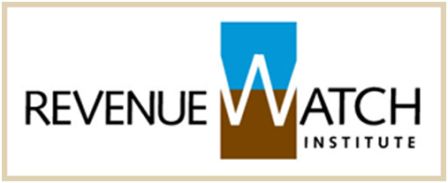Secrecy in Oil, Gas and Mining Conspires Against Economic Development
Citizens in developing countries do not fully benefit from trillions in natural resources
WASHINGTON, DC, 15 May 2013. The lives of over a billion citizens could be transformed if their governments managed their oil, gas and minerals in a more open, accountable manner, according to the Resource Governance Index released today by the Revenue Watch Institute.
The Index measures the transparency and accountability in the oil, gas and mining sector of 58 countries worldwide and finds that the vast majority surveyed fail to meet satisfactory standards in how their natural resources are governed. In these countries, opacity, corruption and weak processes keep citizens from fully benefiting from their countries resource wealth.
In 47 of the 58 Index countries, governments have yet to embrace openness and accountability. Together these 58 nations produce 85 percent of the worlds oil, 90 percent of diamonds and 80 percent of copper, generating trillions of dollars annually.
Some countries prove it is possible to lift the veil of secrecy and meet higher standards of transparency and accountability. The Index research reveals a governance deficit in how transparent and accountable countries are with their natural resources, said Daniel Kaufmann, president of Revenue Watch. But by pointing to reforming states and to solutions, we reject the tired notion of the deterministic resource curse, Kaufmann added. In fact, 11 of the 58 countries receive satisfactory overall scores, including emerging economies in Latin America.
Each country, from highly ranked ones such as Norway, the U.K. and Brazil, to poorly performing nations, such as Turkmenistan and Iran, are judged on four criteria: legal framework, transparency levels, checks and balances, and the broader governance context. Most of the worst performers depend almost exclusively on revenues from natural resources as their main source of income. And the Middle East and North Africa, the most resource-dependent region, is the worst performing.
Key U.S. allies are among the poor performing countries. Saudi Arabia ranks 48th out of 58 with failing scores on all four components. Afghanistan, which has received billions in aid from the U.S. and sits atop an estimated $3 trillion of minerals, performs poorly. U.S. companies invest heavily in the oil sectors of poorly rated countries like Angola. The study also finds that wealth is no guarantee for attaining openness and accountability in natural resources, as illustrated by Qatar, ranked 54th out of 58.
There is room for improvement in every nation, including rich nations, said Kaufmann. Countries like Canada, the U.S. and Australia also need to ensure their multinational companies do not facilitate the opacity found in many countries where they operate.
Improved management of their natural resources could make a major difference in the economic development in many countries. In Nigeria, oil revenues were 60 percent higher than total aid to sub-Saharan Africa in 2011. In Libya, the Central Banks $65 billion in reserves are quickly depleting to pay for the governments deficit spending. Equatorial Guinea has a higher average per capita income than the U.K., yet three fourths of its population lives under the poverty line.
The Index also ranks 45 state-owned oil and mining companies and 23 natural resource sovereign wealth funds according to their levels of transparency and accountability. Industry heavyweights Statoil, Pemex and Petrobras exhibit high rankings, while the national oil companies of Turkmenistan and Myanmar rank at the bottom. The sovereign wealth funds of Kuwait, Libya and Qatar, which hold an estimated $476 billion in total assets, score among the bottom five.
The study offers recommendations for relatively high-ranking as well as low-ranking countries. From disclosing contracts to passing freedom of information laws to improving industry oversight, there are concrete ways for governments of resource-rich countries to become more effective and accountable to their citizens.
The Index analysis not only shows where we are now, but points out ways forward for countries, companies and global initiatives, and this matters because improved governance in natural resources is arguably the development challenge of this decade.
For more details on the Index data and the report, visit www.revenuewatch.org/rgi.
Note: As with any governance data, this Index is subject to margins of error and therefore caution in interpretation and comparisons apply. Further, in its measure of governance, the Index focuses on transparency, integrity and accountability rather than other performance indicators related to extractive efficiency or optimization of revenues.
Courtesy Revenue Watch
Stay with Sierra Express Media, for your trustged place in news!
© 2013, https:. All rights reserved.






